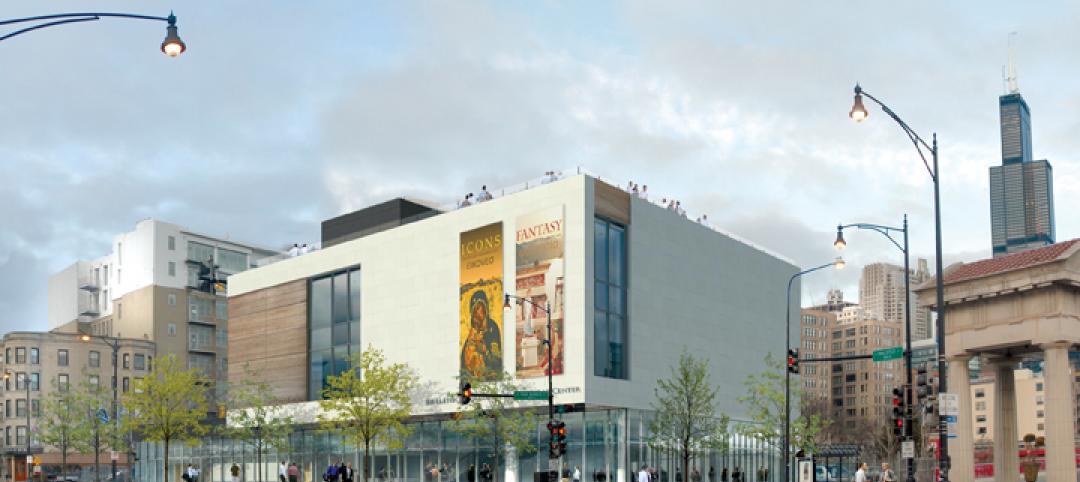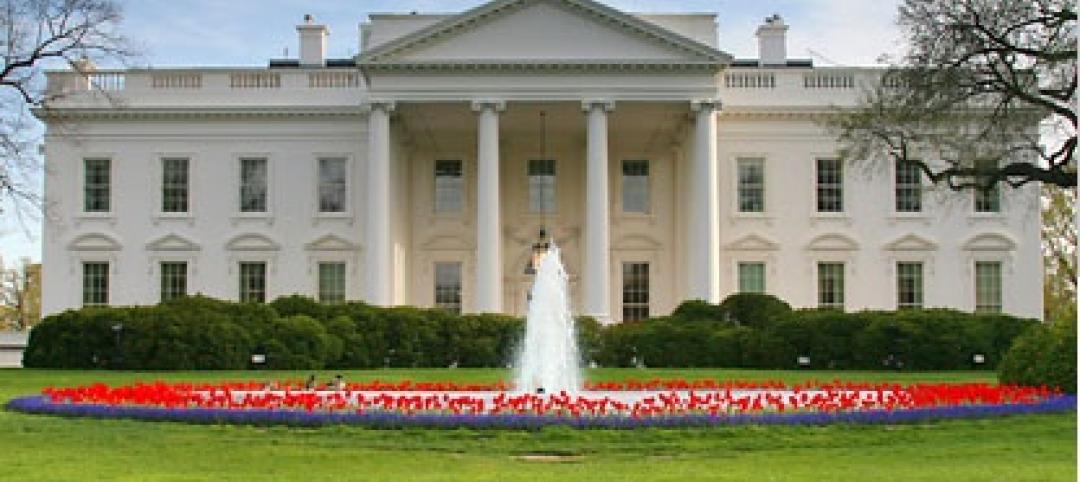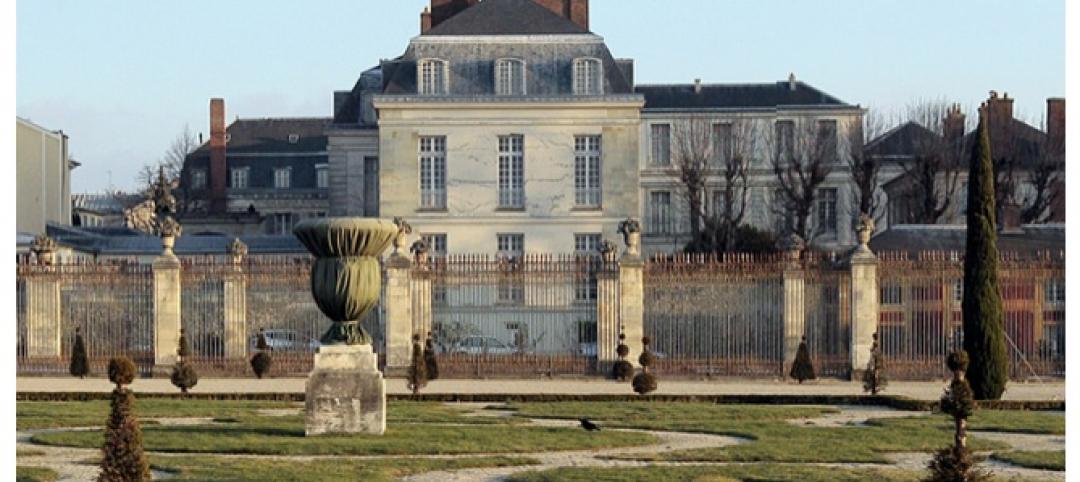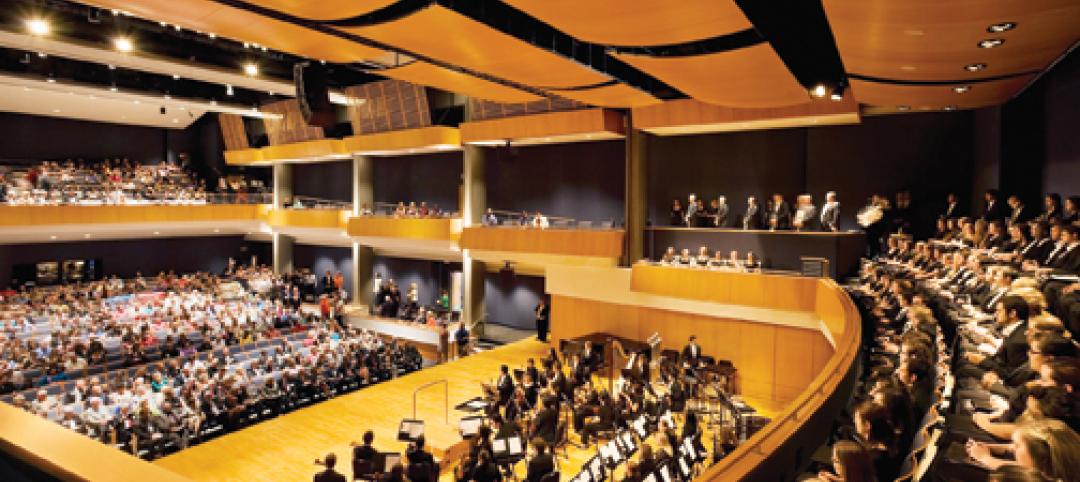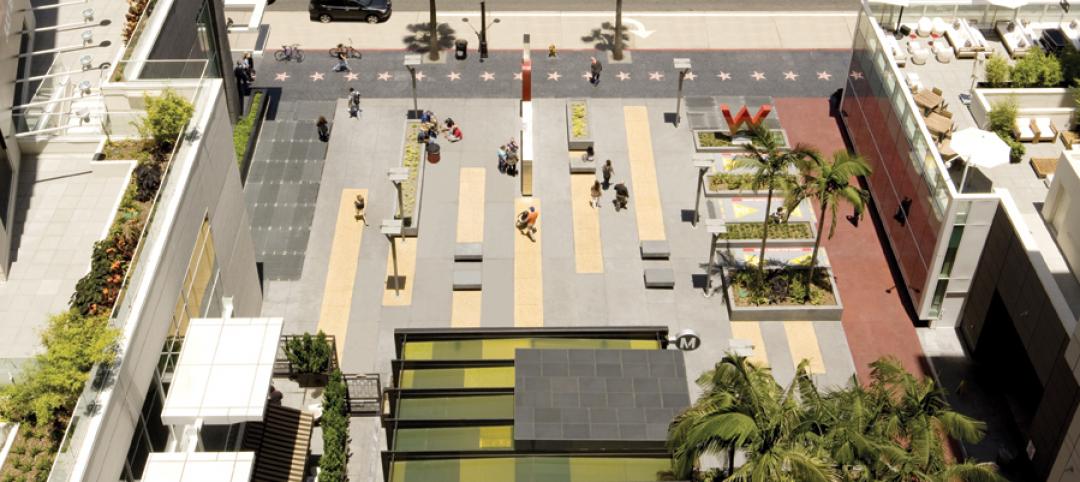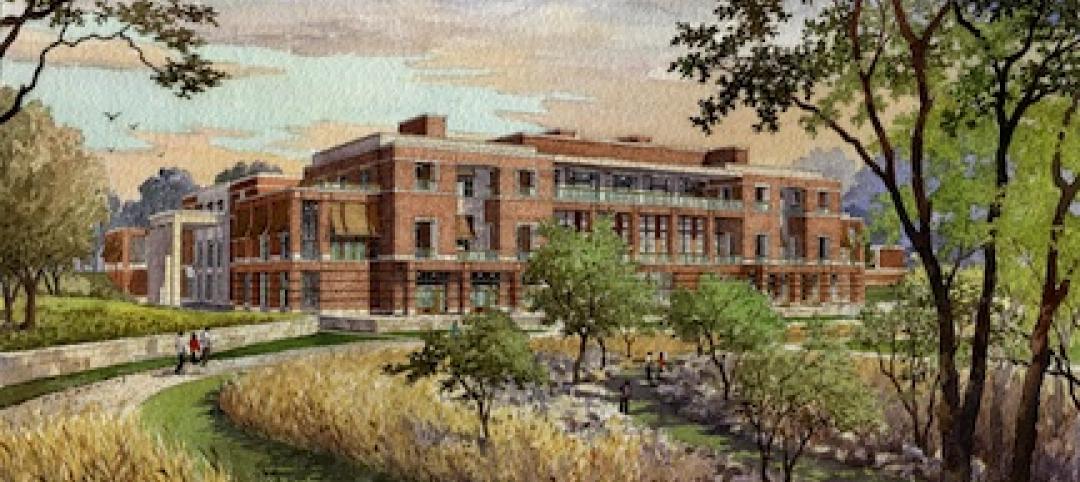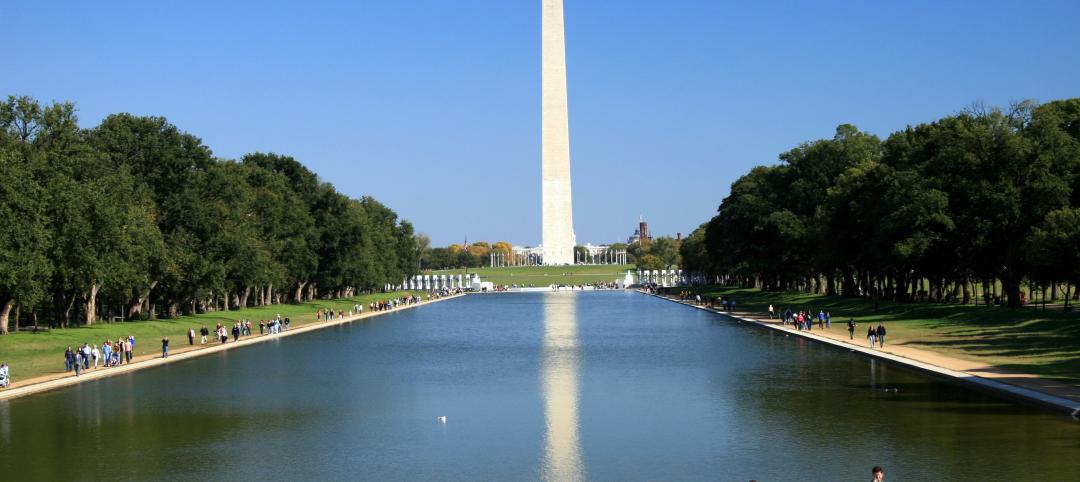The Old Patent Office Building in Washington, D.C., completed in 1867, houses two Smithsonian Institution museums—the National Portrait Gallery and the American Art Museum. Collections include portraits of all U.S. presidents, along with paintings, sculptures, prints, and drawings of numerous historic figures from American history, and the works of more than 7,000 American artists. Following a major renovation, these national treasures, as well as long-hidden architectural features of the 380,000-sf Greek Revival building, can now be viewed in natural light for the first time in decades.
The restoration project Building Team, led by Hartman-Cox Architects, Washington, restored and showcased elements such as the porticos modeled after the Parthenon in Athens, a curving double staircase, colonnades, vaulted galleries, massive windows, and block-long skylights. The effort also restored full visitor access and circulation on all three floors by relocating staff offices to an adjacent building, while opening up 40,000 sf for galleries by removing infill walls and partitions.
The Building Team made extraordinary efforts to use new preservation technologies for restoration of the historic fabric of the building and to re-use historic materials. This included the replacement of the roof with a standing and flat-seam copper exterior. More than 550 windows were replaced, each with an energy shield and UV filter to protect the artworks, while the exterior layer was done in mouth-blown glass, emulating the look of historic glass.
Original marble pavers were salvaged, numbered, restored and reinstalled throughout the building. White oak wood floors consistent with the original design were installed in the remainder of the building.
The project also added several new spaces, two of which are open to visitors—the Lunder Conservation Center and the Luce Foundation Center for American Art. In addition, the Robert and Arlene Kogod Courtyard and the Nan Tucker McEvoy Auditorium, a 346-seat multipurpose space with advanced audio-visual capabilities that was constructed beneath the courtyard, add to the museum's versatility. New monumental stairs and an elevator were added to connect the public entrances at G Street to the auditorium.
A key component of the project was the wholesale replacement of mechanical and electric systems to bring the facility up to current museum standards for lighting and temperature control. As a solid masonry building, however, there was no plenum space in which to place the new systems. The Building Team concealed the M/E components within former ventilation and chimney shafts and under the floors. This set up required modification to the chases to accommodate ductwork and piping. New boilers, chillers, cooling towers, air-handling units, fan coil units, pumps, duct work, and piping were installed so that they would not intrude within the gallery spaces.
Infrastructure modernization included a new telecommunications system with new fiber optic and copper cable, a new fire alarm system (including addressable smoke and heat detectors), and upgrades to the existing fire protection system. A new security system, including glass break and shock sensors, motion detectors, and cameras, will help guard the priceless exhibits.
Restoration of architectural detailing included replacement of worn encaustic and geometric tiles in the Great Hall with handmade, historically accurate, multi-colored replicas produced in England. On the exterior, workers cleaned, patched, and pointed the stone facades.
“The architectural details of the Smithsonian Portrait Gallery restoration were extremely carefully thought out,” said Walker Johnson FAIA, honorary chair of BD+C's Reconstruction Awards program. “The inclusion of mechanical elements within this bearing wall structure is an indication of the length the Building Team went to maintain the original design while still modernizing and restoring the building.”
All told, Hartman-Cox Architects and construction manager Bovis Lend Lease coordinated architects, engineers, and designers from more than one dozen consulting firms representing more than 20 different design disciplines, and prepared four different prime construction contracts for the $283 million renovation. The revitalized building, a major focus of a revitalized downtown Washington, is once again a showpiece for the nation's capital.
Related Stories
| Jan 19, 2011
Museum design integrates Greek history and architecture
Construction is under way in Chicago on the National Hellenic Museum, the nation’s first museum devoted to Greek history and culture. RTKL designed the 40,000-sf limestone and glass building to include such historic references as the covered walkway of classical architecture and the natural wood accents of Byzantine monasteries. The museum will include a research library and oral history center, plus a 3,600-sf rooftop terrace featuring three gardens. The project seeks LEED Silver.
| Jan 4, 2011
An official bargain, White House loses $79 million in property value
One of the most famous office buildings in the world—and the official the residence of the President of the United States—is now worth only $251.6 million. At the top of the housing boom, the 132-room complex was valued at $331.5 million (still sounds like a bargain), according to Zillow, the online real estate marketplace. That reflects a decline in property value of about 24%.
| Jan 4, 2011
Luxury hotel planned for Palace of Versailles
Want to spend the night at the Palace of Versailles? The Hotel du Grand Controle, a 1680s mansion built on palace grounds for the king's treasurer and vacant since the French Revolution, will soon be turned into a luxury hotel. Versailles is partnering with Belgian hotel company Ivy International to restore the dilapidated estate into a 23-room luxury hotel. Guests can live like a king or queen for a while—and keep their heads.
| Dec 17, 2010
Sam Houston State arts programs expand into new performance center
Theater, music, and dance programs at Sam Houston State University have a new venue in the 101,945-sf, $38.5 million James and Nancy Gaertner Performing Arts Center. WHR Architects, Houston, designed the new center to connect two existing buildings at the Huntsville, Texas, campus.
| Dec 17, 2010
Subway entrance designed to exude Hollywood charm
The Hollywood/Vine Metro portal and public plaza in Los Angeles provides an entrance to the Red Line subway and the W Hollywood Hotel. Local architect Rios Clementi Hale Studio designed the portal and plaza to flow with the landmark theaters and plazas that surround it.
| Dec 17, 2010
Toronto church converted for condos and shopping
Reserve Properties is transforming a 20th-century church into Bellefair Kew Beach Residences, a residential/retail complex in The Beach neighborhood of Toronto. Local architecture firm RAWdesign adapted the late Gothic-style church into a five-story condominium with 23 one- and two-bedroom units, including two-story penthouse suites. Six three-story townhouses also will be incorporated. The project will afford residents views of nearby Kew Gardens and Lake Ontario. One façade of the church was updated for retail shops.
| Nov 23, 2010
The George W. Bush Presidential Center, which will house the former president’s library
The George W. Bush Presidential Center, which will house the former president’s library and museum, plus the Bush Institute, is aiming for LEED Platinum. The 226,565-sf center, located at Southern Methodist University, in Dallas, was designed by architect Robert A.M. Stern and landscape architect Michael Van Valkenburgh.
| Nov 16, 2010
Brazil Olympics spurring green construction
Brazil's green building industry will expand in the coming years, spurred by construction of low-impact venues being built for the 2016 Olympics. The International Olympic Committee requires arenas built for the 2016 games in Rio de Janeiro meet international standards for low-carbon emissions and energy efficiency. This has boosted local interest in developing real estate with lower environmental impact than existing buildings. The timing couldn’t be better: the Brazilian government is just beginning its long-term infrastructure expansion program.
| Nov 10, 2010
$700 million plan to restore the National Mall
The National Mall—known as America’s front yard—is being targeted for a massive rehab and restoration that could cost as much as $700 million (it’s estimated that the Mall has $400 million in deferred maintenance alone). A few of the proposed projects: refurbishing the Grant Memorial, replacing the Capitol Reflecting Pool with a smaller pool or fountain, reconstructing the Constitution Gardens lake and constructing a multipurpose visitor center, and replacing the Sylvan Theater near the Washington Monument with a new multipurpose facility.
| Nov 9, 2010
Designing a library? Don’t focus on books
How do you design a library when print books are no longer its core business? Turn them into massive study halls. That’s what designers did at the University of Amsterdam, where they transformed the existing 27,000-sf library into a study center—without any visible books. About 2,000 students visit the facility daily and encounter workspaces instead of stacks.


